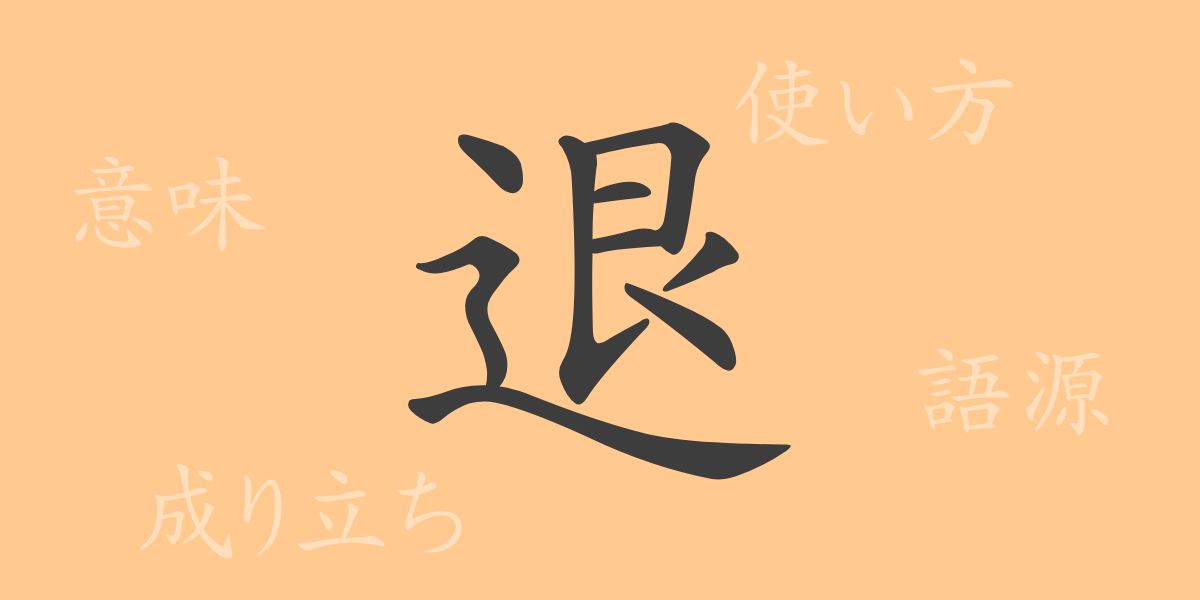The Japanese writing system deeply reflects the country’s culture, and Kanji play a crucial role in enriching communication. One such Kanji, ‘退’ (タイ) (tai), is deeply ingrained in our daily lives and has been used in many idioms and proverbs over the years. This article delves into the history, meaning, and usage of the Kanji ‘退,’ exploring its significance in the Japanese language.
Origin of ‘退’ (tai)
The Kanji ‘退’ developed from ancient Chinese pictographs. Initially, it depicted a person standing beside a path, symbolizing the action of stepping back or retreating. This imagery evolved over time to express not only physical withdrawal but also abstract concepts like decline or withdrawal in broader contexts.
Meaning and Usage of ‘退’ (tai)
The Kanji ‘退’ primarily means ‘to retreat,’ ‘to withdraw,’ or ‘to step back.’ It is commonly used to describe actions where movement away from something is involved, either literally or metaphorically. In Japanese, it forms compound words that often relate to backing down or reducing something, such as in duties or engagement.
Readings, Stroke Count, and Radical of ‘退’ (tai)
‘退’ is a versatile Kanji in Japanese, used in various contexts with different readings.
- Readings: On’yomi (タイ) (tai), Kun’yomi includes ‘しりぞ.く’ (shirizoku), ‘しりぞ.ける’ (shirizokeru), ‘ひ.く’ (hiku), ‘の.く’ (noku), ‘の.ける’ (nokeru).
- Stroke Count: ‘退’ consists of 9 strokes.
- Radical: The radical is ‘辵’ (しんにょう) (shinnyou), which is associated with walking or advancing.
Phrases and Idioms Using ‘退’ (tai) and Their Meanings
Numerous idioms and phrases include the Kanji ‘退,’ each with unique meanings:
- 退職 (たいしょく) (taishoku) – To resign or retire from a job.
- 退屈 (たいくつ) (taikutsu) – To be bored or uninterested.
- 退治 (たいじ) (taiji) – To exterminate or eliminate something problematic.
- 退廃 (たいはい) (taihai) – Decay or decline, especially in moral or cultural contexts.
- 退場 (たいじょう) (taijou) – To leave or exit a place.
These expressions demonstrate the richness of the Japanese language and reflect the various nuances of ‘退.’
Conclusion on ‘退’ (tai)
The Kanji ‘退’ symbolizes moving away or diminishing in various aspects of life. Through idioms and everyday usage like ‘退職’ (resignation) or ‘退屈’ (boredom), it shows its versatility in the Japanese language. This article has hopefully deepened your understanding of the history and application of ‘退,’ illustrating the depth of the Japanese language through just one character.

























